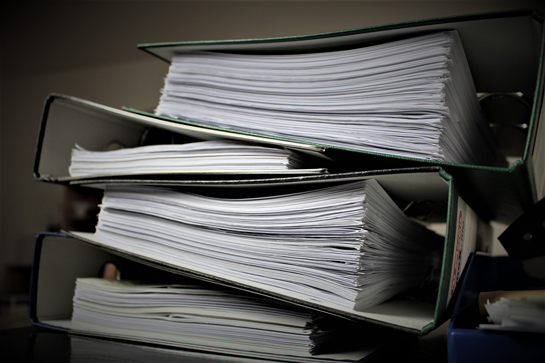
In the 2015-16 fiscal year, customs duties accounted for about $5.4 billion (1.8 percent) of all federal revenue. The Auditor General of Canada recently finished their independent audit of the Canada Border Services Agency (CBSA) and other key government agencies with respect to customs duties for the period between January 2013 and May 2016. Specific recommendations were developed and accepted by the CBSA. The purpose of this notice is to highlight the recommendations which were agreed to by the CBSA and to outline what this means to Canadian importers.
ASSESSING CUSTOMS DUTIES – Recommendations
1. The CBSA should implement a process that requires regular review of a Customs Broker’s compliance Record
2. There should be a shared liability for both the importers and the customs broker to comply with import requirements
What This Means For Importers
The agency will conduct further reviews of broker licensing practices. Working with a financially strong customs broker that maintains a strong record of compliant practices will become increasingly important as the CBSA will evaluate sharing of liability between importers and licensed brokers to comply with import requirements and paying duties and taxes. This review and recommended actions will be completed by September 2018.
3. The CBSA should review its penalties in order to better protect import revenues and ensure compliance with trade programs
What This Means For Importers
The CBSA will be reviewing their penalties by June 2018 and will create a more meaningful deterrent to importer non-compliance related to the evasion of import revenues and ensuring compliance with trade programs. Financial penalties related to incorrectly classifying goods and to completing forms will increase.
4. Unless otherwise specified in a free trade agreement, the CBSA will review the period for retroactive changes on the import form, without compromising the Agency’s ability to conduct compliance verifications
What This Means For Importers
The CBSA has agreed to review their current framework that allows retroactive changes on their import forms for up to four years after the goods have been imported While they have not specified the details, the CBSA will develop options to reduce the period allowed for the changes. Importers should act now to understand and take advantage of drawback and duty reduction opportunities.
Controlling Goods – Recommendations
5. Enforcement of Tariff Rate Quotas
The audit found that importers have been bringing quota-controlled goods into Canada without permits or paying customs duties. This includes products such as beef, chicken, turkey, dairy, and egg products. This is due to the current systems in place by the CBSA and Global Affairs Canada. It was recommended that both agencies should better enforce tariff rate quotas by reviewing their current process of verifying tariffs and explore ways to automate the process of validating quota controlled accounting declarations
What This Means For Importers
Both Global Affairs Canada and the CBSA have agreed to the auditor general’s recommendation and will be reviewing the permit verification process. They hope to identify any gaps and challenges they are currently facing, as well as the efficiency of validating and enforcing tariff rate quotas, and they plan to complete this review by September 2017. Importers are encouraged to stay informed of tariff rate quota deadlines and limits.
6. Improve Duties Relief Program Compliance
After review, it was found that the duties relief program is ineffective, and allows supply-managed goods to enter the Canadian market without the applicable duties being paid. The recommendation was made for the CBSA to improve the duties relief program by considering making licences renewable and conditional on an importer’s compliance record and requiring a financial deposit from the importer in proportion to the value of duties at risk.
What This Means For Importers
The CBSA has agreed to the recommendation and is consulting with the Department of Finance Canada for potential improvements to compliance. They have committed to a target of October 2018, and what these improvements will look like remains to be seen. That being said, importers should be prepared for a possible financial investment to participate in the program, and the fact that their compliance track record may be a direct influence on their license renewal.
Analyze and Update the Customs Duties Regime – Recommendations
7. The review of the auditor general found that the Department of Finance Canada should review customs tariffs to identify specific tariff items that no longer meet their policy objectives and that could possibly be modified.
What This Means For Importers
In recent years, the Department of Finance Canada has had a proactive tariff policy in support of important economic policy objectives. This includes numerous measures to assist various economic sectors (including industrial manufacturing, agri-food processors and transportation), support customers, and ensure tariff programs for developing countries aligned with global realities. The Department of Finance Canada has agreed to continue their proactive approach to tariff policy while reviewing tariff items that could be modified. Importers will need to stay on top of any tariff changes to ensure they are properly classifying their goods and remaining compliant. Working closely with a customs broker is recommended, as they will know any tariff changes that will impact your business.
8. Analysis of the $20 minimum threshold for postal and courier imports
The Department of Finance Canada analyzed the minimum dollar amount for postal and courier imports on which customs duties were charged (De Minimus), but could not conclude whether the analysis was complete. No recommendation was made in this area of examination.
Conclusion of the Auditor General of Canada audit report
The key takeaway from this independent audit is that compliance is becoming a bigger focus for the CBSA. Ensuring that your customs broker has a solid record of compliance is crucial, as future CBSA actions will hold brokers and importers more accountable for their compliance records.

